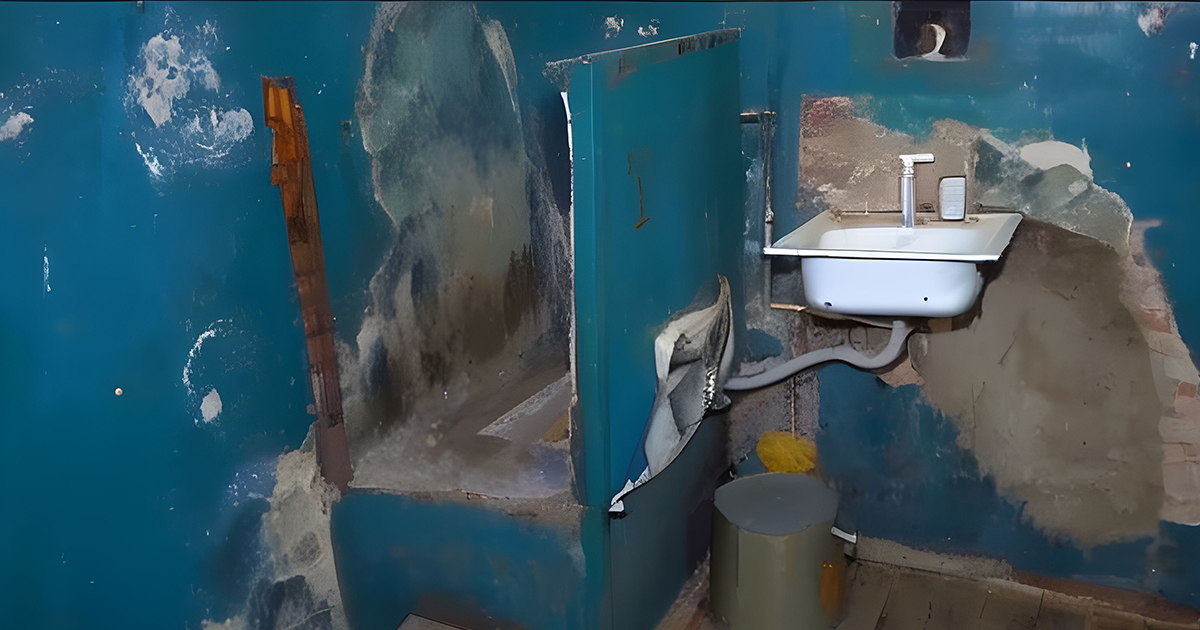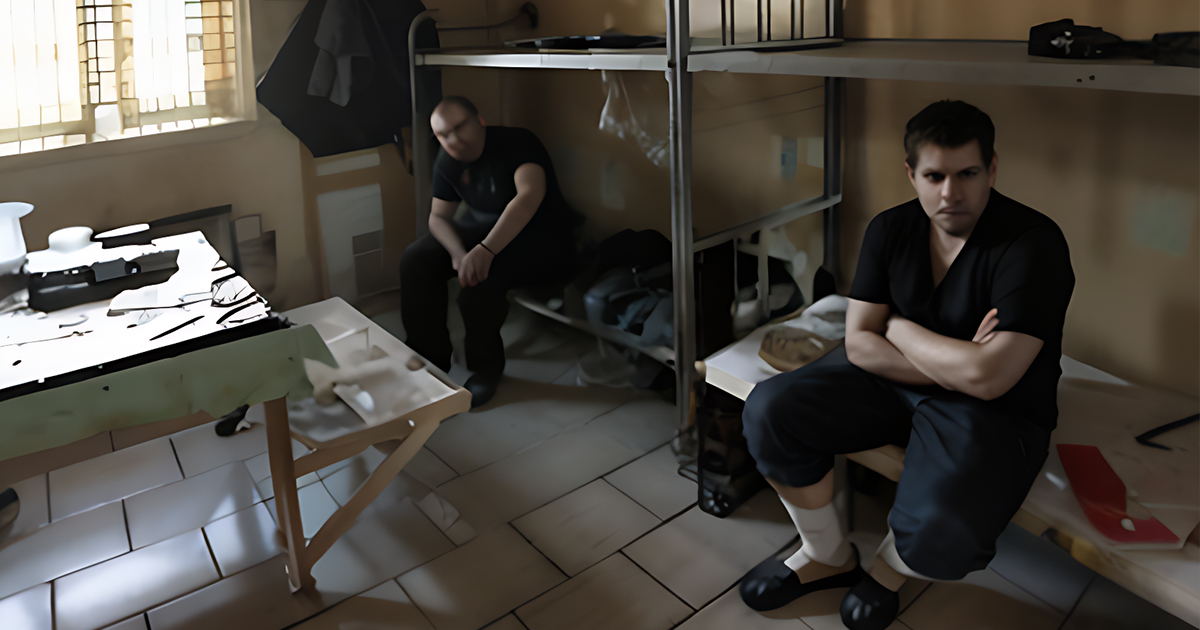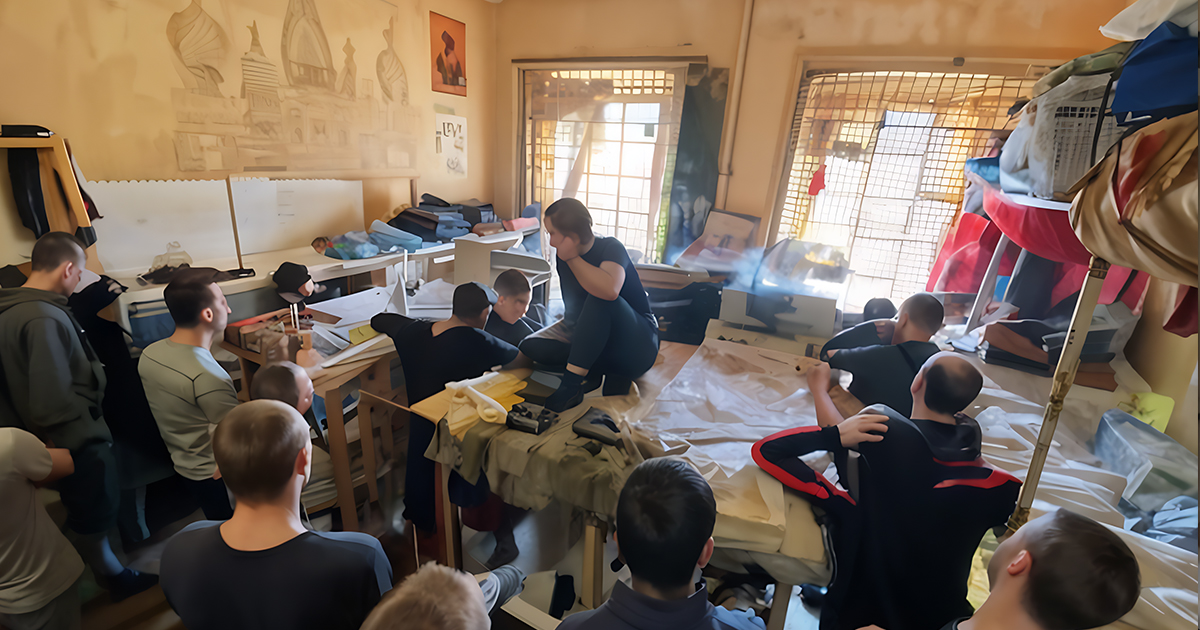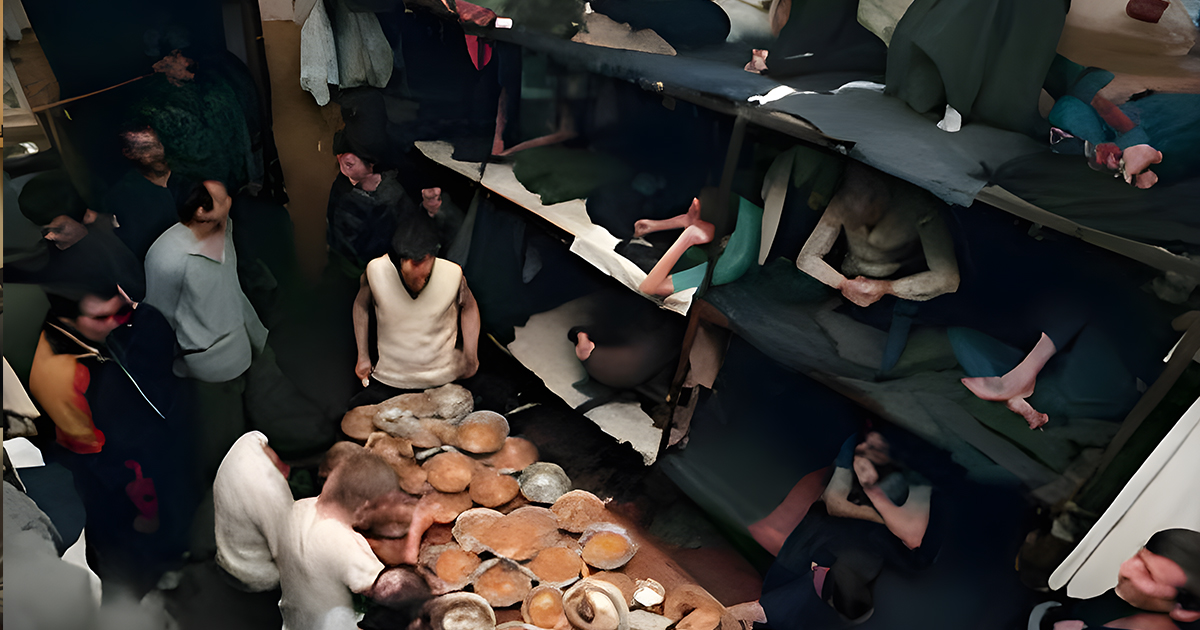SIZO, Pre-Revolutionary Criminal Law in Russia

In pre-revolutionary Russian criminal law, the term "detention" was interpreted in two ways. It referred to both accused individuals whose freedom was restricted during the investigation period and those convicted of crimes serving their sentences. Additionally, it applied to individuals detained due to failure to meet debt obligations. Consequently, institutions executing sentences of imprisonment and those holding suspects were indistinguishable, and their activities were regulated by uniform normative acts.
By the late 19th century, Russia had developed an extensive prison system, but separating accused and convicted individuals in practice remained unsuccessful. Efforts were made, such as the House of Preliminary Detention in St. Petersburg, Russia's first special investigative prison.
Development of Specialized Institutions
The 1924 Penal Labor Code of the RSFSR still did not provide for the creation of specialized institutions for detention as a preventive measure. This was handled by detention houses. In 1930, institutions for pretrial detainees and transit convicts were included in the system of places of detention, but due to insufficient funding, this idea was not realized.
Only with the 1963 order by the Ministry of Internal Affairs of the RSFSR on the reorganization of prisons into investigative isolation wards (SIZOs) and the separation of convicts from other places of deprivation of liberty were the facilities for suspects and accused finally distinguished from other detention places. From then on, SIZOs housed:
- Suspects, accused, and defendants under preventive detention
- Convicted individuals whose sentences had not yet come into legal force
- Individuals from penal labor institutions participating in investigative actions
- Prisoners being transferred to another correctional institution
- Convicts assigned to SIZO for household work.

Purpose of SIZOs
In the criminal executive system, SIZOs occupy a special place. They are intended for holding suspects and accused individuals under preventive detention, as stated in Article 8 of the Federal Law "On Detention of Suspects and Accused of Committing Crimes." The objectives of isolating suspects and accused include:
- Rapid and thorough investigation of crimes
- Preventing suspects from evading justice, continuing criminal activity, or obstructing the investigation
- Ensuring the enforcement of sentences and the inevitability of responsibility.
Additionally, according to Article 74 of the Penal Code of the Russian Federation, SIZOs also serve as correctional facilities for:
- Individuals assigned to SIZOs for household work
- Convicts sentenced to up to 6 months who choose to stay in SIZOs
- Convicts whose sentences have come into force but are awaiting transfer to a correctional facility
- Individuals being transferred from one place of deprivation of liberty to another
- Convicts involved in investigative actions as victims, witnesses, suspects, or accused.

Conditions in SIZOs
Conditions in SIZOs are similar to prison conditions, leading some individuals previously convicted to prefer colonies over SIZOs. Inmates are assigned to cells based on personality and psychological compatibility. Men and women, minors and adults, suspects, and accused individuals involved in the same case, and first-time offenders and recidivists are housed separately. Suspects and accused are not placed in the same cell with convicts.
According to Article 33 of the Federal Law "On Detention of Suspects and Accused of Committing Crimes," certain individuals are housed separately, including those suspected or accused of murder, intentional infliction of serious harm to health, banditry, and organizing criminal communities, among other crimes. The space norm per detainee is 4 square meters (2 square meters for convicts). Inmates are provided with a bed, bedding, pillows, blankets, a basic set of clothing, and hygiene items. Cells must be equipped with one- or two-tier beds, tables, benches, clothes hooks, shelves for toiletries, and other necessary items.
Suspects and accused can choose to work in production workshops, repair and construction work within the SIZO. They receive payment, credited to their accounts. Convicts serving sentences in SIZOs must work in designated areas and receive a salary, part of which is deducted for the institution's expenses on food, clothing, and hygiene items.
Detailed internal rules for SIZOs are approved by the Ministry of Justice of the Russian Federation's Order No. 110 of July 4, 2022. The rules for convicts are outlined in Appendix No. 2, and for suspects/accused in Appendix No. 1, applicable to all SIZOs, including those in Moscow and the Moscow region.
Rights and Obligations of Inmates
Both suspects, accused, and convicts must:
- Comply with legal requirements and rules
- Obey lawful demands of SIZO staff
- Maintain cleanliness and order
- Follow specific behavior rules (e.g., no noise, addressing staff formally)
- Treat SIZO property with care
- Undergo personal searches and provide personal items and food for inspection as required.
Inmates have the right to:
- Receive information about their rights and obligations from the SIZO administration
- Address personal issues with the SIZO administration
- Meet with a criminal lawyer
- Receive timely medical care
- Have daily walks
- Access additional services at their expense (e.g., clothing repair, document copying, food delivery, legal and notary services).
Meetings and phone calls in SIZOs require permission from the case investigator, inquirer, or judge. If permission is denied, there is little chance of approval. Inmates may have up to two meetings per month, each lasting up to three hours, with relatives or other individuals. Phone calls are unlimited, but each call requires separate permission, making multiple calls unlikely.
The new rules, approved by the Ministry of Justice of the Russian Federation's Order No. 110 of July 4, 2022, significantly improved living conditions in SIZOs for suspects, accused, and convicts, including:
- Guaranteed eight-hour uninterrupted sleep
- Comfortable conditions for personal searches
- Ability to make bank and postal transfers
- Right to access and obtain copies of their medical records, acquire and keep medications, etc.
Overall, laws easing conditions in SIZOs are regularly adopted. On May 23, 2023, the State Duma of the Russian Federation approved a bill introducing significant innovations for suspects, accused, and convicts, including the involvement of disciplinary commissions in decisions regarding penalties and transfers.
Duration of Detention
The standard detention period, according to Article 109 of the Criminal Procedure Code of the Russian Federation, is two months. If the investigation is not completed within this period and the measure cannot be canceled or changed, the district court can extend the detention up to six months. The period can be extended to 12 months if:
- The individual is accused of a serious or particularly serious crime
- The case is highly complex.
Detention can be extended to 18 months for those accused of particularly serious crimes. Further extensions are not allowed unless the investigator completes the preliminary investigation and provides the case materials to the accused and their defender at least 30 days before the maximum detention period expires.
For the trial phase, different terms apply. According to Article 255 of the Criminal Procedure Code, the detention period from the moment the case reaches the court until the verdict is issued cannot exceed six months. Extensions are permitted for serious and particularly serious crime cases, each time for three months, with no time limit.

Credit for Time Served in SIZO
Time spent in SIZO counts towards the sentence according to Article 72 of the Criminal Code of the Russian Federation. One day in SIZO equals:
- 1.5 days in a disciplinary military unit
- 2 days of restricted freedom, compulsory labor, or arrest
- 3 days of correctional labor or military service restriction
- 8 hours of compulsory work
- 1 day in prison or strict/special regime correctional colony
- 1.5 days in an educational colony or general regime correctional colony
- 2 days in a settlement colony.
Time in SIZO is counted as "1 to 1" in cases of:
- Particularly dangerous recidivism
- Death penalty commutation to life imprisonment or 25 years of imprisonment
- Convictions for terrorism, illegal drug trafficking, and certain other crimes
- Imprisonment in strict or special regime or prison.
Time in SIZO is not credited for conditional sentences. However, if the conditional sentence is later replaced with a real one, the days spent in SIZO will be accounted for.
Acknowledgments
- Criminal Code of the Russian Federation No. 63-FZ of June 13, 1996 (as amended on April 28, 2023) // "ConsultantPlus" System.
- Penal Enforcement Code of the Russian Federation No. 1-FZ of January 8, 1997 (as amended on December 29, 2022) // "ConsultantPlus" System.
- Criminal Procedure Code of the Russian Federation No. 174-FZ of December 18, 2001 (as amended on April 28, 2023) // "ConsultantPlus" System.
- Federal Law No. 103-FZ of July 15, 1995 "On Detention of Suspects and Accused of Committing Crimes" (as amended on December 29, 2022) // "ConsultantPlus" System.
- Order of the Ministry of Justice of the Russian Federation No. 110 of July 4, 2022 "On Approval of Internal Regulations for Investigative Isolators of the Penal System, Internal Regulations for Correctional Institutions, and Internal Regulations for Correctional Centers of the Penal System" (as amended on April 3, 2023) // "ConsultantPlus" System.
- Belyaev N.A. Purposes of Punishment and Means of Their Achievement. - Leningrad, 1963. - 186 p.
- Borsuchenko S.A. Regime of Execution (Serving) of Punishments and Problems of Its Legislative Regulation // Law Enforcement Monitoring. - 2016. - No. 1 (18).

